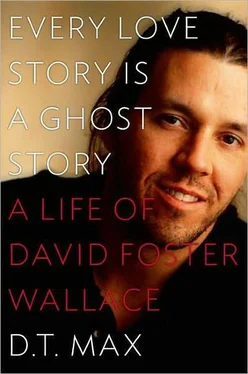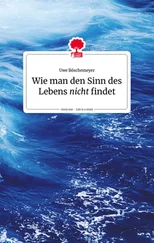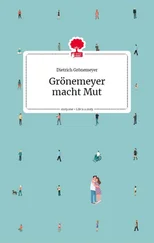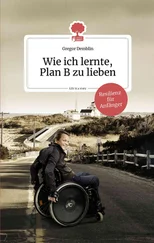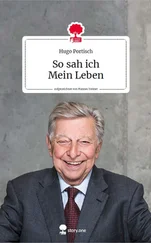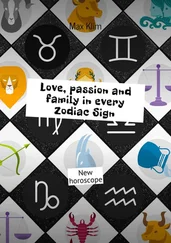Yaddo the second time was a hurried-up parody of the first. He worked late into the night — Burkhart guessed he was taking speed to stay up — but he had no satisfying project to commit to. He worked mostly on the pornography manuscript, struggling to separate what was interesting from what was not and always feeling he had failed. He came to think that what was needed was a reported piece on how the industry had changed as the so-called golden age of porn gave way to the era of inexpensive and inartistic video. 24Inevitably, he returned to Somerville dissatisfied, nothing finished, the time nearing when he would have to, as he wrote Franzen, “toddle off with my Get Smart lunchbox for the first day of grad school.” He had ambitions beyond the rational at this point. He wanted to write full-time, fulfill his first-year graduate philosophy student requirements, plus “intro german plus intro library science plus a seminar on Cowper, Collins and Smart in the English Dept., plus probably a part-time job,” he had written to Moore in the spring, adding without irony, “I’m leery of committing myself to more.” Having no center to his work, Wallace seemed to have no limits either.
The final weeks of the summer were hectic. He was often drunk or stoned, but also snuck off to recovery meetings, at least fitfully. Costello would come home from his office and find that Wallace had turned on the fan in his room to disperse the smoke. Since Costello did not care if his roommate got high, he concluded that the only person Wallace could have been hiding his habit from was himself. One night the two went to a party; Costello came home first and Wallace appeared in the early morning with a bloody hand. Remembering that part of recovery was the obligation to make amends, he went back to the grocery whose window he had busted and shoved $200 into the surprised cashier’s hand. “There was no shortage of chaos around 35 Houghton Street, apartment 2,” Costello wrote in summary in his memoir of his time there with Wallace. “Lost bills went unpaid. The phone rang at 3:00 A.M. and women banged on the back door two hours later.”
Everything was coming to a head as Wallace got ready for school. The piece on Wittgenstein remained unwritten, and the porn essay was a mess. He had written an unsuccessful “short journalistic version…a waste of 2 Yaddo weeks,” as he wrote Nadell. He’d thrown that away and now it was again, he added, “horribly long…. I’ve got about 200 pages and am only half done (‘ NOT a nice noise, Bonnie’).” Yaddo seemed a complete washout. When he looked for comfort he realized his relationship with Walden was past repair.
Even Alice Turner was furious with him again. She had thought he was researching a novel, but it had turned out he wanted her to publish his insights on the pornography industry. “This magazine is way beyond you,” she lectured him. “We already know the things that you are offering as new discoveries.” Wallace hemmed and hawed, apologized for the “confusion, misunderstanding, deception, whatever,” explained he was trying to get out of the “rut of ‘self-conscious meta-shit’ you seem to think is my only interest and forward gear.” “I must say,” Turner wrote back, “you’re like one of those Bozo bags that bounces back every time you take a shot at it.”
In August 1989, Girl with Curious Hair came out at last. “The stories in his first collection,” Norton’s catalog stated, “could possibly represent the first flowering of post-postmodernism: visions of the world that re-imagine reality as more realistic than we can imagine.” These words perfectly captured Wallace’s hope for the book. Kirkus Reviews , though, found the writer “too much impressed with his own gifts and with some current critical theory.” It was, Wallace wrote to Morrow, “a real brown helmet…. I’ve told Gerry I’m just not going to read fucking reviews, good or bad, this time.” On the plus side, the New York Times Book Review gave the book a full review. Written by Jenifer Levin, a young novelist, hers was the most positive notice his fiction would ever get in that paper. It praised Wallace as “a dynamic writer of extraordinary talent” and singled out not just “Lyndon” but the little-loved “John Billy,” his Gass homage. An even brighter spot was an essay by Sven Birkerts in Wigwag . Birkerts was Wallace’s natural reader, because he too was keenly interested in how writers adapt to a changing world. To the question “What is the fiction writer — the writer who would try to catch us undistorted in our moment — to do? What prose will raise a mirror to our dispersed condition?” he put forward Wallace:
We sense immediately that Wallace is beyond the calculated fiddle of the postmodernist. He’s not announcing as news the irreparable fragmentation of our cultural life; he is not fastening upon TV and punk culture and airport lounges as if for the first time ever. Wallace comes toward us as a citizen of that new place, the place that the minimalists have only been able to point toward. The rhythms, disjunctions, and surreally beautiful — if terrifying — meldings of our present-day surround are fully his. Wallace is, for better or worse, the savvy and watchful voice of the now —and he is unburdened by any nostalgia for the old order.
Few other critics felt as Levin and Birkerts did. Most newspaper reviewers skipped the book entirely, and those who wrote about it mostly evaluated the individual stories. Wallace felt that missed the point — who cared if one story was better than another? The point was that the collection as a whole was meant to open the door to a new kind of fiction. “A lot of it is like being told your soup needs less salt,” he complained to Moore.
Not that Wallace himself didn’t have clear favorites in the collection. These are evident in an exchange of letters with Franzen. Wallace had never had close literary friends; he was too competitive, judgmental, and self-absorbed. Most literary fiction he did not care about, and what few books were worth reading were worth writing, which meant in turn that he wished he’d written them. The no-writer-friends rule was not conscious but grew out of his personality, and like most of Wallace’s behavior, had a refractory edge: he also felt guilty that he felt this way, which made him all the more want to avoid the whole issue.
But the past few years had been humbling ones for Wallace, and the humiliation had made him more open to other writers’ writing. In fact, in such moments some aspect of his self-anger made him overestimate the work of others in order to diminish his own. Thus, during his time in Somerville two authors had earned his intense admiration. One was William Vollmann, whose collection The Rainbow Stories Wallace had read three times that spring in galleys and thought evidence, as he wrote to Moore, of “the best young writer going.” In that collection, the novella “The Blue Yonder,” half expressionist nightmare, half reportage, “simply separates sock from pod,” he reported to Franzen. Vollmann reminded Wallace of Pynchon, Coover, and William Burroughs but was “remarkably unselfconscious” in his debts, a writer whose every word satisfied Wallace’s call for fiction that subtly parried the media that saturated it in creating a new kind of art. 25
In person, though, Vollmann was too odd for the fundamentally bourgeois Wallace. The two had had dinner that spring in New York with Brad Morrow, and afterward Wallace reported to Moore that his counterpart was “more than a bubble off plumb — prefers bloody venison and chocolate cake washed down with Stout for supper, speaks easily of blow-jobs and cooze while we’re eating.” Franzen, the more conventional of the two and a midwesterner, was the better match for Wallace. For one thing he was hungry for the company of other writers. A friendship for him consisted in equal parts of affection and challenge, a dynamic Wallace knew well from his days on his high school tennis team.
Читать дальше
